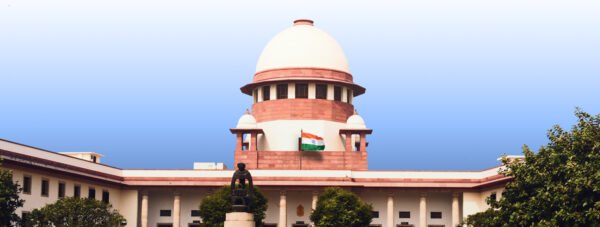Can Timelines Be Imposed? President’s Big Question to the Supreme Court

The Supreme Court of India recently set a precedent by imposing timelines for Governors and, for the first time, the President to act on Bills passed by state legislatures. Specifically, the Court directed that the President should decide on Bills reserved for consideration within three months from the date of reference, and that any delay beyond this period must be justified and communicated to the concerned state. This move came after the Court found the Tamil Nadu Governor’s delay in acting on ten Bills to be “illegal and arbitrary”.
President’s Query to the Supreme Court
In response, President Droupadi Murmu has invoked Article 143 of the Constitution, which allows the President to seek the Supreme Court’s opinion on questions of law or matters of public importance. The President has specifically asked:
Whether, in the absence of a constitutionally prescribed timeline, the Supreme Court can impose deadlines and prescribe the manner of exercise of powers by the President or Governors through judicial orders.
Whether such actions by the President or Governor are justiciable (subject to judicial review), given Article 361, which states that the President or Governor is not answerable to any court for the exercise of their official powers.
Key Legal and Constitutional Issues
No Explicit Timeline in Constitution: The Constitution does not currently specify a timeframe for the President or Governor to act on Bills under Articles 200 and 201.
Judicial Overreach Concerns: The President and the central government have questioned whether the judiciary can prescribe such timelines, suggesting it may constitute judicial overreach unless explicitly provided for in the Constitution.
Complete Justice Powers: The Supreme Court’s authority under Article 142 to do “complete justice” is also being scrutinized-whether it can override the constitutional roles of the President and Governors.
Current Status
The Supreme Court’s April 2025 order is being challenged, and a Constitution Bench may be formed to decide if such timelines are constitutionally valid and enforceable.
The President’s reference under Article 143 is a formal request for the Supreme Court’s advisory opinion on these critical constitutional questions.
Summary Table: Key Issues at Stake
| Issue | Supreme Court’s Position | President’s Question/Concern |
|---|---|---|
| Timeline for Presidential/Governor Assent | Set at 3 months by SC | Can SC impose such deadlines absent in Constitution? |
| Justiciability of President/Governor’s Actions | SC: Yes, in case of delay or arbitrariness | Is such discretion subject to judicial review? |
| Constitutional Basis | Article 142 (complete justice) | Does Article 142 override explicit constitutional roles? |
The Supreme Court has, for the first time, imposed timelines for the President and Governors to act on Bills, sparking a significant constitutional debate. President Murmu has formally asked the Supreme Court whether such timelines can be imposed through judicial orders in the absence of explicit constitutional provisions, raising concerns about judicial overreach and the separation of powers. The Supreme Court’s forthcoming opinion will have far-reaching implications for the balance between the executive and judiciary in India.
